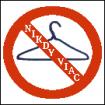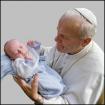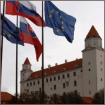 |
|
Dr. Jarmila Lajcakova explains how the Draft Treaty on Conscientious Objection "would effectively make the delivery of state services conditional on compliance with Catholic teaching" and be a model for the rest of Europe. She examines both the original and the revised version. Due to objections by EU human rights lawyers at the end of 2005 this concordat was put on ice, but in 2007 the Church renewed calls to go ahead with it.
|
 |
|
According to this newspaper article, some women in Slovakia are already encountering difficulty getting abortions due to widespread conscientious objection, and there are fears that the "conscience concordat" would legitimise this.
|
 |
|
♦ Critical statements by some Slovak NGOs and politicians
♦ Letter signed by 52 Members of the European Parliament across the geographical and political spectrum
♦ Letter signed by 130 leaders of international religious, women’s rights and human rights organisations worldwide
|
 |
|
Vatican doctrine must not be allowed to override human rights, says report of European Union lawyers. Medical professionals should not have an unlimited right to impose their beliefs on others. They should not refuse to provide contraceptives or perform abortions, when this effectively denies a patient treatment which is allowed by law. Here is the report of the Network of Independent Experts on Fundamental Rights, Opinion N° 4-2005, a summary and excerpts from it.
|
 |
|
The Vatican tried to push through a new kind of concordat in this small, newly-independent and Church-controlled country. This plan was so audacious that it led to protests both inside and outside Slovakia, and on 6 February 2006 caused the fall of the Government. The dangers posed by giving health workers an unfettered right to conscience, as in this draft concordat, were shown in Italy, which in 2014 drew a rebuke from the Council of Europe.
|
 |
|
In 2003 Pope John Paul II visited Eastern Europe for the last time. His aim was to discourage any liberalisation of Slovakia’s abortion laws, for that would have made it harder to push through the upcoming concordat on “freedom of conscience”. This papal visit, his third to Slovakian territory, was planned as an anti-abortion campaign.
|
 |
|
When the Slovak Foreign Minister refused to sign the controversial "conscience concordat", the Christian Democrats pulled out of the coalition and the government fell. The appendix gives thirteen contemporary accounts from Slovakia and abroad.
|
 Draft “conscience concordat” (2004): commentary and EU report (2005)
Draft “conscience concordat” (2004): commentary and EU report (2005)













